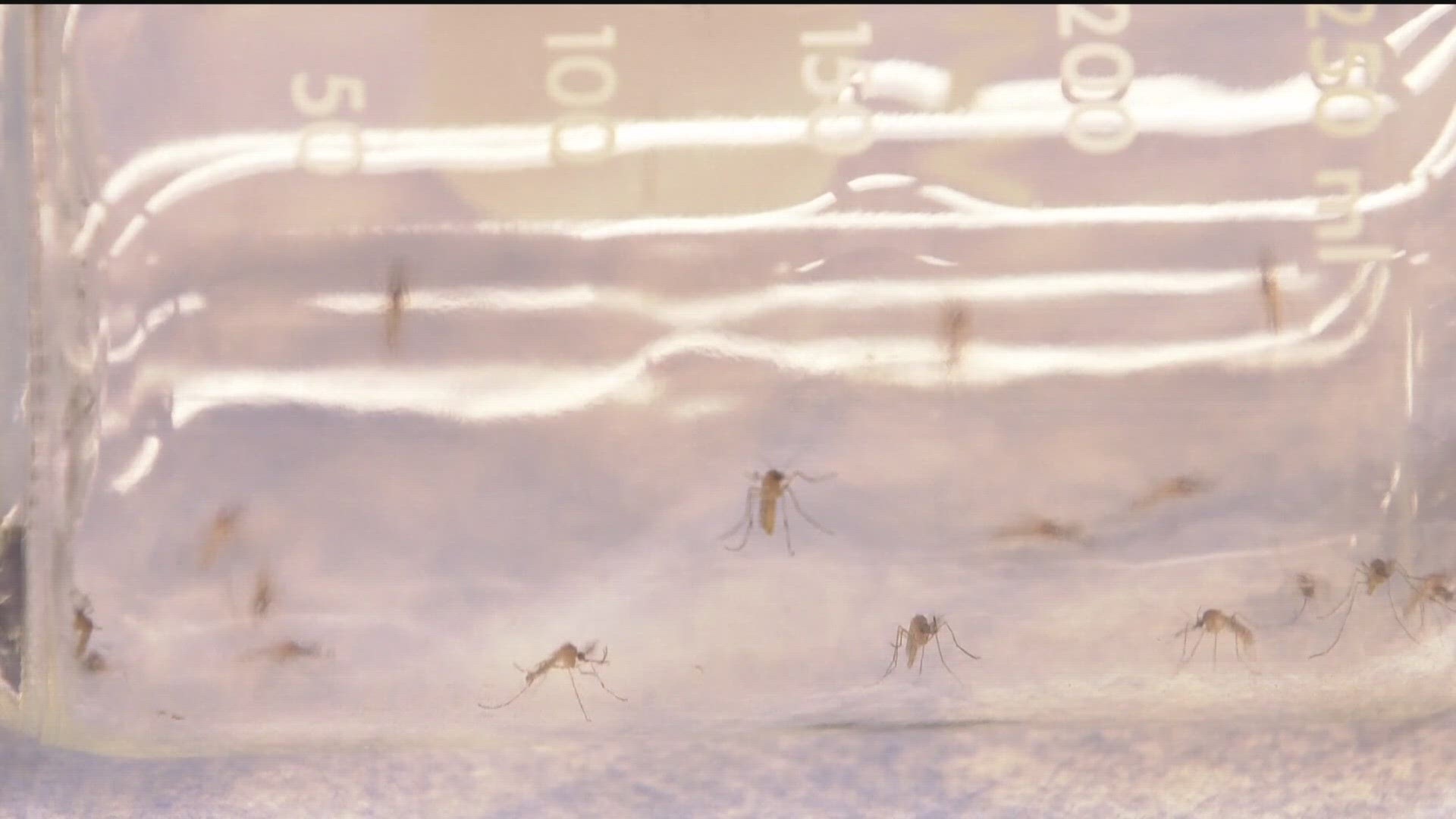DENVER — Denver's health department said on Thursday that it has confirmed three cases of West Nile virus and is investigating three more as Colorado sees an increase in cases of the virus.
> The video above aired Aug. 5: UCHealth expert provides insight into West Nile virus
"Based on the past 20 years of monitoring by municipalities, counties, and the state, we have seen extremely high levels of mosquito activity in our region this summer," said Bob McDonald, executive director of the Denver Department of Public Health and Environment, in a news release. "It’s extremely important to take extra precautions to protect yourself, your family, and neighbors, especially if you’re spending time outdoors in the morning or evening."
One person, a 53-year-old man from Weld County, has died of the virus in Colorado this year.
West Nile virus is most commonly spread from the bite of an infected mosquito. It can't be spread through person-to-person transmission.
The Denver Department of Public Health and Environment recommends residents take the following precautions to help protect against the virus:
- Stop mosquitoes from laying eggs in or near water on your property.
- Once a week, empty and scrub, turn over, cover or throw out items that hold water, such as tires, buckets, planters, toys, wheelbarrows, pools, birdbaths, flowerpots, or trash containers.
- Check for water-holding containers both indoors and outdoors.
- Do not water your cement or the street. It can result in pools that support larval mosquitoes.
- If you are making landscape decisions, consider ways to minimize overspray (of irrigation) to streets and gutters.
- Use Environmental Protection Agency-registered insect repellents with DEET. When used as directed, EPA-registered insect repellents are proven safe and effective, even for pregnant and breastfeeding women.
- Avoid activity outdoors from dusk until dawn.
- When outdoors, wear loose-fitting, long-sleeved shirts and pants.
- Use mosquito repellent as well as candles, incense, and other means to deter mosquitos from your vicinity.
- Use screens on windows and doors. Repair holes in screens to keep mosquitoes outdoors.
While everyone is at risk of being infected with West Nile, people over 50 years old, or with weakened immune systems, are at greater risk of developing serious illness, the health department said.
Symptoms typically include fever, extreme fatigue, headache, and body aches, and can also include skin rashes and swollen lymph nodes. Symptoms generally appear three to 14 days after being bitten by an infected mosquito. While most infections are mild, more serious infections can cause encephalitis (inflammation of the brain), meningitis (inflammation of the brain's lining), loss of vision, paralysis, coma, tremors, convulsions and even death.
There is no treatment, cure, or human vaccination for the virus, but medical professionals can treat symptoms to help patients feel better and possibly recover more quickly.
In Colorado, most West Nile virus cases are diagnosed in August and September, but cases can be identified as early as May and as late as December. Generally, the mosquito season extends from late April until mid-October, with the end usually signaled by the first freeze.
PREVIOUS STORY: Larimer County reports 'unprecedented risk' of West Nile virus, Front Range's first human case this year
SUGGESTED VIDEOS: Latest from 9NEWS

